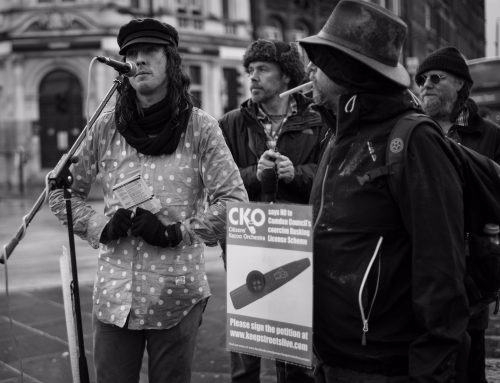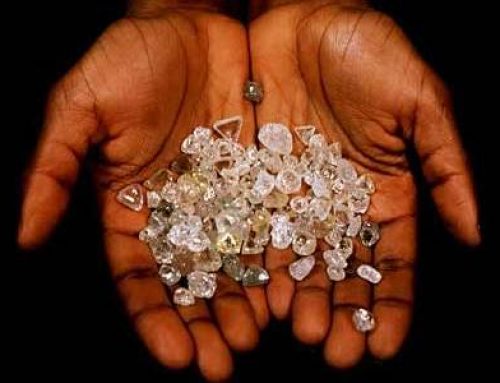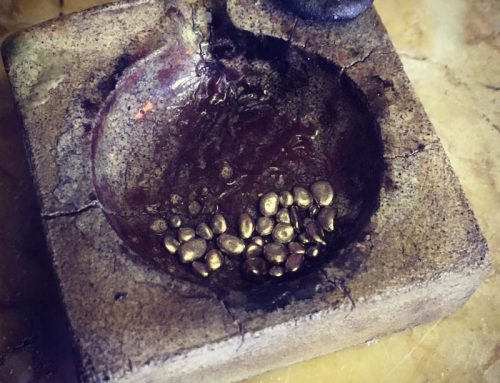Below is the text issued by Human Rights Watch about the launch of the NGO coalition campaign on greater transparency, traceability and human rights performance from the luxury jewellery brands. Needless to say the recently published report on the Human Rights performance of the luxury jewellery brands makes for depressing reading. The jurassic jewellery practices of some of the world’s most well known jewellery brands must come to an end. I am hoping that as consumers with a conscious and advocates for human rights all over the world will promote the #BehindTheBling campaign and force the brands out into the public domain.
Behind the Shine: A Call to Action for the Jewelry Industry
Jewelry is meant to be a symbol of beauty, love, and commitment. Every year, consumers purchase nearly US$300 billion of jewelry for themselves or for loved ones. But increasingly, promoting the story of beauty, love, and commitment is not enough – customers want to be sure that the precious minerals and gems in their jewelry have been sourced responsibly.
The conditions under which gold and diamonds are mined can be brutal. Miners – including children – are injured and killed in unsafe gold or diamond mining pits. Indigenous peoples and other local residents living near large-scale mines are forcibly displaced. In conflict zones, civilians suffer enormously as abusive armed groups and criminal networks enrich themselves by exploiting gold and diamonds. Mines are polluting waterways and soil with toxic chemicals, harming the health and livelihoods of whole communities.
Jewelry companies are not doing enough to ensure they are sourcing responsibly, and many fail to publicly and transparently report on the due diligence efforts they say they undertake. Companies often rely on the Responsible Jewellery Council, which brings together over 1,000 companies in the jewelry supply chain. But the Responsible Jewellery Council promotes standards that allow companies to be certified even when they fail to support basic human rights. The Kimberley Process, another scheme often used by companies, is focused too narrowly on diamonds linked to rebel forces, applies only to rough diamonds, and places no responsibility on companies. Governments rarely require industry actors to undertake robust human rights due diligence. The United States and the European Union have adopted laws on the responsible sourcing of gold (as well as tin, tungsten, and tantalum), but more countries need to follow their lead, and laws should apply to a wider range of minerals.
Jewelry companies can meet the demand for ethically sourced jewelry by putting responsibility and transparency at the heart of their business – and a few have already begun to do so. Under existing voluntary standards, established by the United Nations and the Organization for Economic Cooperation and Development, companies are expected to put in place a “due diligence” process to identify human rights risks, address these risks, and account for their efforts to the public and to independent auditors.
We, the undersigned NGOs and trade unions, are calling upon the jewelry industry to turn its commitment to responsible sourcing into effective action.
Jewelry Companies Should:
- Put in place and implement a robust supply chain due diligence policy and incorporate it into contracts with suppliers, in line with the five steps outlined in the OECD Due Diligence Guidance for Responsible Supply Chains of Minerals from Conflict-Affected and High-Risk Areas;
- Ensure full chain of custody over gold and diamonds by requiring and assessing evidence of business transactions, amongst other things, as well as the provenance of minerals and their transport routes from their suppliers;
- Assess and respond to human rights risks throughout their supply chains, including by ensuring that workers have a right to unionize and access to effective remedy;
- Check their own conduct and that of their suppliers through independent third-party audits;
- Publicly report on their human rights due diligence on an annual basis, including which risks were identified, what mitigation steps were taken, and what investments were made in this regard;
- Publish the names of their gold and diamond suppliers, as well as information about suppliers’ participation in independent third-party audit mechanisms, where applicable;
- Actively seek out opportunities to source gold and diamonds from artisanal and small-scale mines that are not associated with human rights violations and willing to engage in credible legalization and formalization processes;
- Support initiatives to improve human rights conditions in artisanal and small-scale mining communities, including through formalization, the implementation of due diligence, and community-based human rights initiatives;
- Engage in and actively support multi-stakeholder initiatives designed to strengthen responsible minerals sourcing and due diligence across industries and sectors; this should include mining cooperatives and trade unions.
Amnesty International
Anti-Corruption Trust of Southern Africa
Arbeitsgruppe Schweiz Kolumbien ask! (Swiss Working Group on Colombia, Switzerland)
Artisanal Gold Council (Canada)
Centre for Natural Resource Governance (Zimbabwe)
Child Labor Coalition (US)
Coalition de la Société Civile de la Région de Grands Lacs contre l’exploitation illégale des Ressources Naturelles (Democratic Republic of Congo)
Ecumenical Institute for Labor Education and Research (Philippines)
Enough Project (US)
Gesellschaft für bedrohte Völker (Society for Threatened Peoples STP, Switzerland)
Global March Against Child Labor
Global Witness
Groupe d’Appui aux Exploitants des Ressources Naturelles (Democratic Republic of Congo)
Groupe de Recherche et de Plaidoyer sur les Industries Extractives (Côte d’Ivoire)
Human Rights Watch
India Committee of the Netherlands (Netherlands)
IMPACT (Canada)
IndustriALL Global Union
International Corporate Accountability Roundtable
International Labor Rights Forum
MIHOSO International (Ghana)
National Consumers League (US)
New Light Children Centre Organization (Tanzania)
Public Eye (Switzerland)
Réseau de Lutte Contre La Faim (Cameroon)
Solidarity Organisation Afrikagrupperna (The Africa Groups of Sweden)
Stop Child Labour Coalition (Netherlands)
Swedwatch (Sweden)
Zimbabwe Environmental Law Association (Zimbabwe)





Leave A Comment
You must be logged in to post a comment.